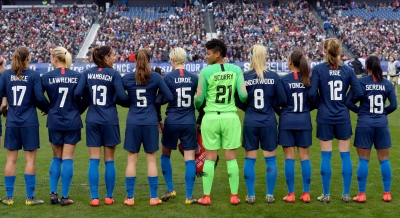
Every time a company releases the list of the top 100 highest-paid athletes, there is always a need to search it to find female names. That number has consistently been on the lower end of the spectrum, almost always in single digits and sometimes even with no women on the list.
Participation in sports has been discriminatory for the longest of times, with men favoured over women in most societies. Even though participation of women in sports has scaled up by leaps and bounds in the past few decades, there are a number of biases that are still in play in sports.
Chief among them is probably the wage gap, with men often earning multiple times more than their female counterparts. The issue has been highlighted for nearly half a century now, and even though it is nowhere near rectified, the slow process of bridging the gap is definitely on now.
Apart from the salaries earned by playing a sport, monetary benefits in sports also include endorsement deals, merchandising, media coverage, and ticket sales, among others. With women’s sports gaining ground across these aspects, there is reason to believe that the process of making sport more equitable for all is getting faster.
According to a study by BBC across 68 different sports, five out of every six sports now give equal prize money to men and women at the world championship level. Even though this is great news, it is important to note that this is the case only at the highest level and only the cream of each sport actually get there. For the countless others trying to make ends meet at the state, national and even international levels, there’s still a long way to go.
FOLLOWING A TRAILBLAZER
One of the first outspoken women on this issue was American tennis star Billie Jean King. Starting in 1973, King raised awareness about unequal pay and led the movement for equal pay for men and women in tennis tournaments, and sports in general.
In recent years, many women have voiced their views on the gender pay gap in their own ways. India’s squash star Dipika Pallikal Karthik boycotted the Senior National Championships from 2012, demanding equal pay for women and men. After winning the tournament in 2011, she took part next only after five years in 2016, when the organisers decided to have equal prize money for the women and men at the nationals.
In football, Norwegian superstar Ada Hegerberg decided not to play the World Cup in 2019 to protest against the pay gap. The U.S. Women’s National Team, who won the FIFA World Cup in 2019, filed a lawsuit against the US Soccer Federation, accusing them of discrimination on the basis of gender.
Picture Credit : Google




